Our records come in all different shapes and sizes, but we love them all the same. We know there’s a story in every box that’s just waiting to be told. It doesn’t matter if they’re 1,000 years old or 20 years old, each offers a glimpse into the past.
Stories Unboxed is a new display that takes a single document and explores its story. Let our specialists highlight topical finds and lesser-known treasures whilst you immerse yourself in moments of the past.
See it for yourself:
- In person on the first floor of our building in Kew during opening hours
- With a ten-minute talk from one of our collection specialists on the second Tuesday of every month, 12 noon, on the first floor
- Online, through a variety of articles right here on this page.
Currently on display
Find out more about our current Stories Unboxed:
December 2024
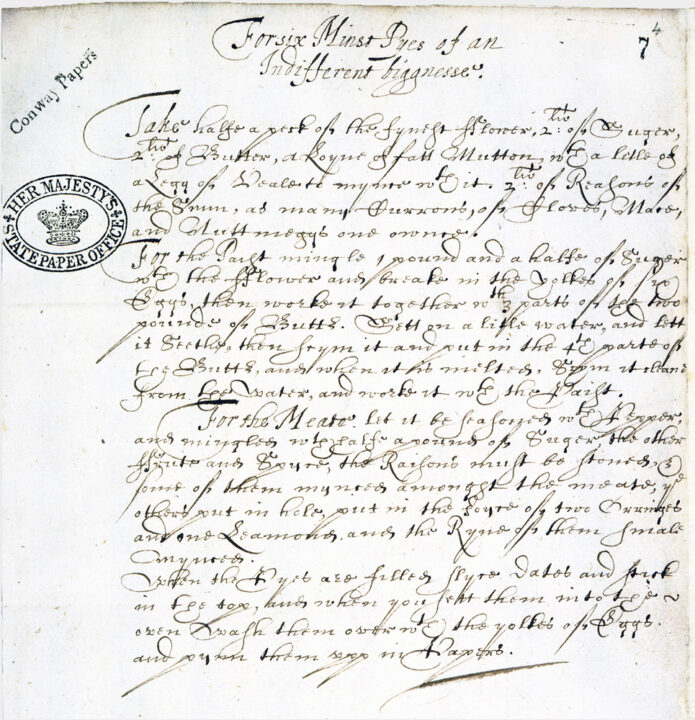
17th century recipe for mince pies and spiced wine
Government papers occasionally reveal tasty surprises like these two recipes, which give us an insight into how people’s tastes in the 1600s differ from our own.
This mince pie recipe is initially recognisable to modern appetites but also includes two types of meat. The wine, steeped with spices and then strained through linen, was often drunk cold.
Past displays
Read more about previous Stories Unboxed, and the work we’ve done to make these displays possible:
November 2024
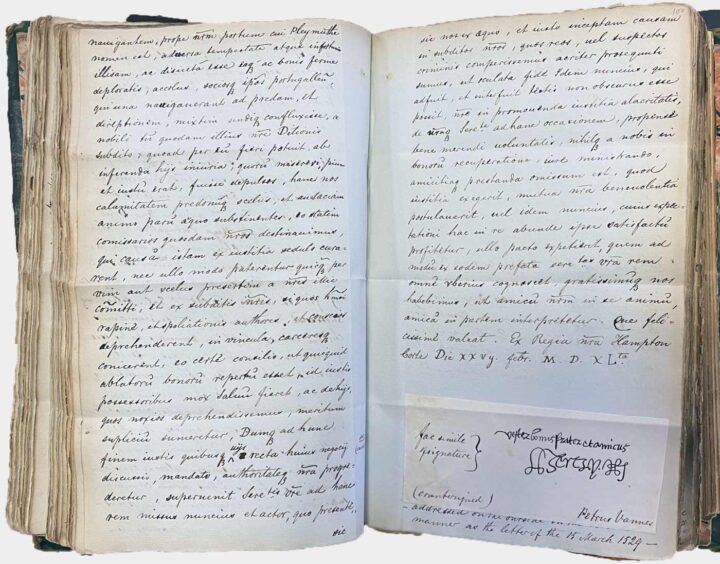
1835 copy of a letter sent to João III of Portugal by Henry VIII
This copy of a letter from Henry VIII regarding a Portuguese shipwreck was transcribed in 1835 by a civil servant, Charles Masterton.
Masterton was one of the first international record agents employed when the creation of the British state archive began in the early 19th century. Sent to Lisbon in 1834, it was here he discovered this 1540 letter from the king.
October 2024
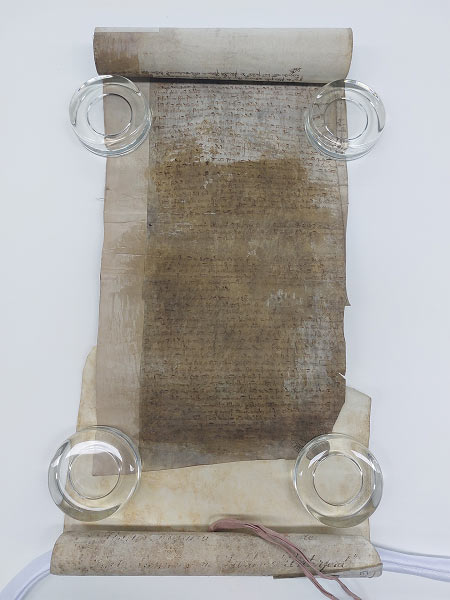
An Irish roll damaged by ‘galling’
This roll contains allegations of corruption in the colonial government of late 13th-century Ireland, but it’s not just the fact that it’s written in Latin that makes it difficult to read. 19th-century efforts to improve the legibility of the faded ink – a treatment called ‘galling’ – resulted in permanent staining.
But even though the text may be obscure, this record can still tell you a lot. This month, we’re inviting visitors to use touch, sound and smell to explore its material story.
September 2024

Harness’ Electropathic Belt made by the Medical Battery Company
Unexpectedly surviving among some court papers, this medical belt was one of a number of Victorian devices that claimed to use the power of electricity to cure ailments.
August 2024
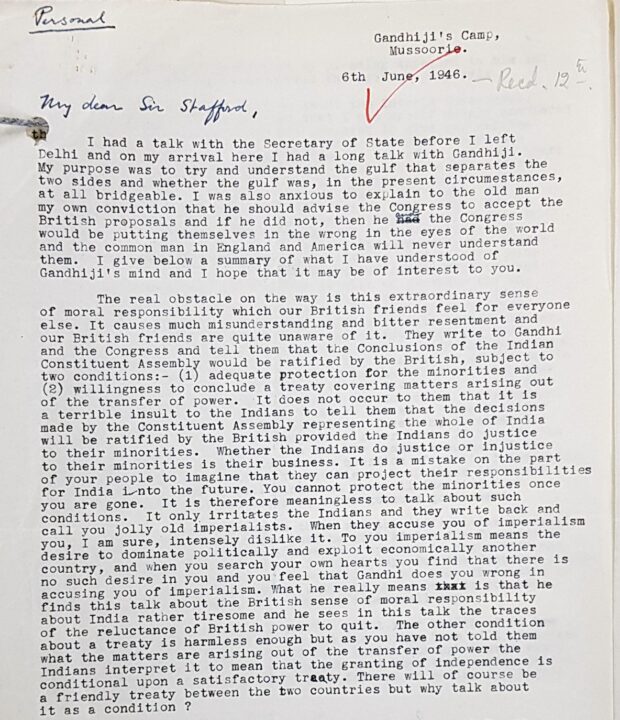
A letter from Gandhi’s confidante, Sudhir Ghosh
This record is an example of those in our collection detailing Indian and Pakistani Independence, but from a lesser-known voice – Gandhi’s confidante, Sudhir Ghosh.
The letter, sent to British MP Sir Stafford Cripps, sheds light on the complex and entangled world of politics where negotiations took place.
July 2024
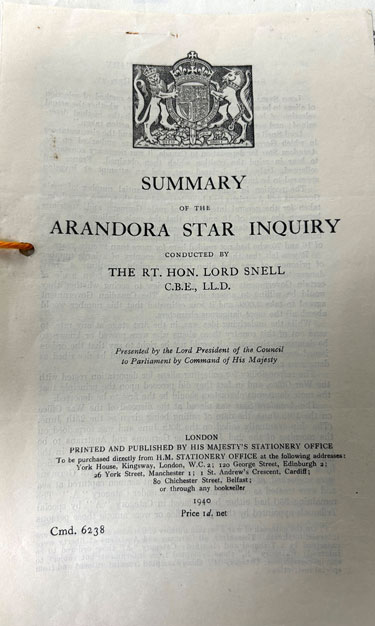
Summary of the Arandora Star Inquiry
In July 1940 the SS Arandora Star was torpedoed by a German submarine off the coast of Ireland. 805 people died, most of whom were Italian civilians being deported to Canada.
Henry Snell, 1st Baron Snell, was appointed chair of an inquiry into the tragedy, which changed public opinion about interning foreign citizens. This document shows his findings.
June 2024
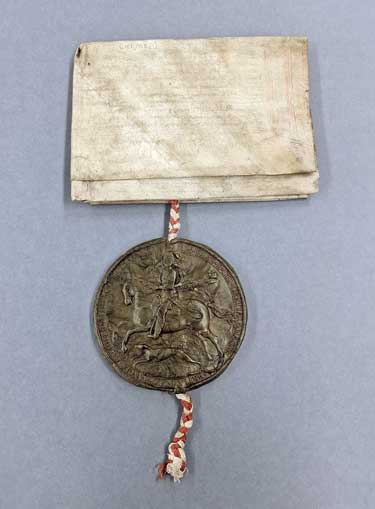
Letter patent with the Great Seal of Ireland attached
This unexpected gem is a document issued by the Chancery in Dublin, granting land to a John Farrell.
Attached is the Great Seal of Ireland, indicating approval from King Charles II in impressive style.
May 2024
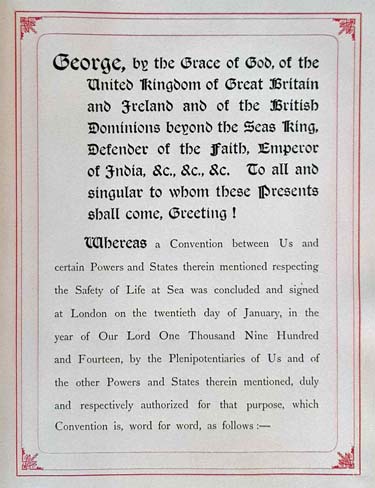
The Convention for the Safety of Life at Sea (SOLAS)
The first Convention for the Safety of Life at Sea was prompted by the sinking of RMS Titanic.
An attempt to establish basic rules became the most important international treaty about the safety of merchant ships and sea travel.
April 2024
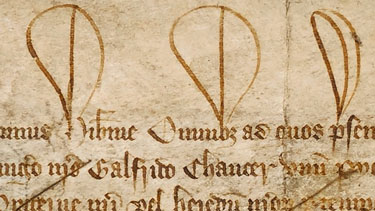
An unusual royal gift to the poet Geoffrey Chaucer
How do you reward a medieval poet? This document granted the author of the Canterbury Tales an unusual royal gift: a daily allowance of wine.
March 2024
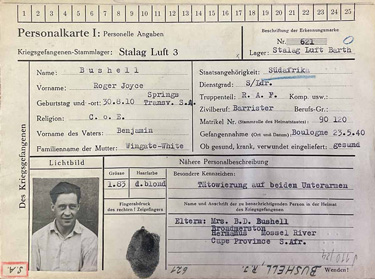
German record card for Roger Bushell, mastermind of the ‘Great Escape’
Roger Bushell (1910–1944) was a pilot, prisoner of war, and participant in the ‘Great Escape’ from Stalag Luft III in March 1944.
Murdered by the Gestapo for his actions, Bushell’s story inspired Richard Attenborough’s character in the 1963 film The Great Escape.
February 2024
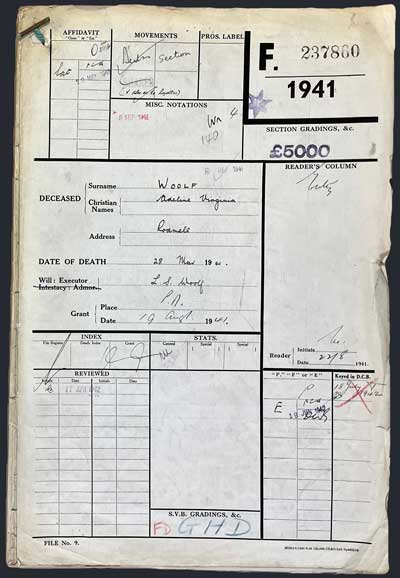
Virginia Woolf’s death duty record
Death duty records might sound formal and dry, but can reveal a great deal about a person’s true feelings.
What can we learn about the loves and friendships of Bloomsbury Group author Virginia Woolf from whom she left her life’s labours to?
January 2024
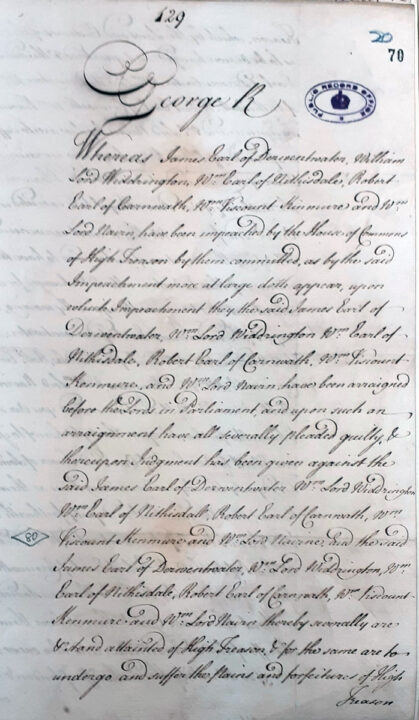
Order for the execution of the leading Jacobite magnates
This document contains orders for the execution of six leading members of the failed Jacobite Rebellion of 1715. The Jacobites supported the restoration of the Stuart line to the thrones of England, Scotland and Ireland following the deposition of James Stuart (James II) in 1688.
The 1715 Rebellion, along with another in 1745, was the peak of the Jacobitism movement.
December 2023
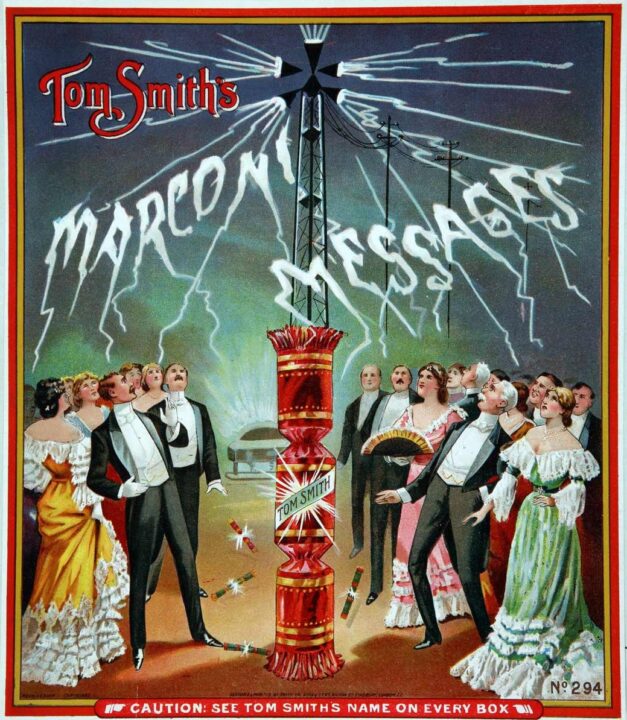
Tom Smith’s Christmas crackers
This December, get closer to the Christmas crackers that started it all. In the 1840s, confectioner Tom Smith invented the festive tradition that goes ‘pop’, with his company soon becoming a leading manufacturer. The National Archives’ collection of Tom Smith’s cracker box labels, two of which are on currently on display, shows the creative ways he themed his crackers, tapping into popular interests of the day to boost sales.
November 2023
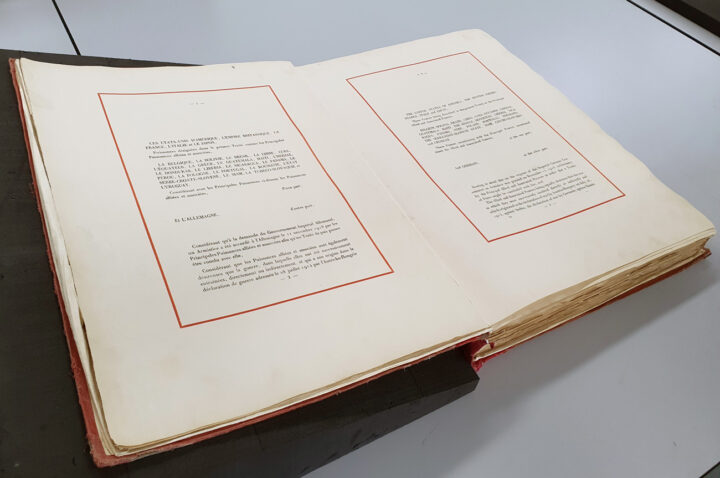
The Treaty of Versailles
The National Archives holds the authenticated British copy of the Treaty of Versailles. Signed on 28 June 1919, this iconic and debated 428-page document set out the terms and conditions for peace following the First World War.
October 2023
The papers of Nuestra Señora de Covadonga, a treasure galleon
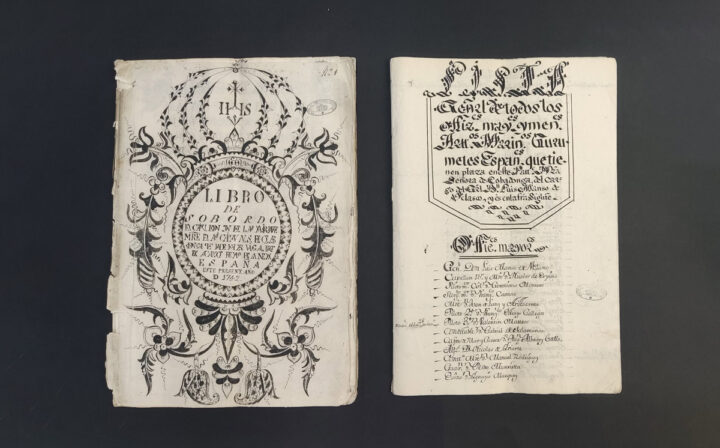
Recently found in the Prize Papers collection, this set of letters and ship’s papers came from the Spanish treasure galleon Nuestra Señora de Covadonga, which sailed the Pacific Ocean between 1731 and 1743. The trade routes sailed by Spanish galleons caused significant cultural, political and economic changes across the world, making these ships’ voyages some of the most significant in global history.
September 2023
Letter and memorandum concerning the Denning Committee on Legal Records
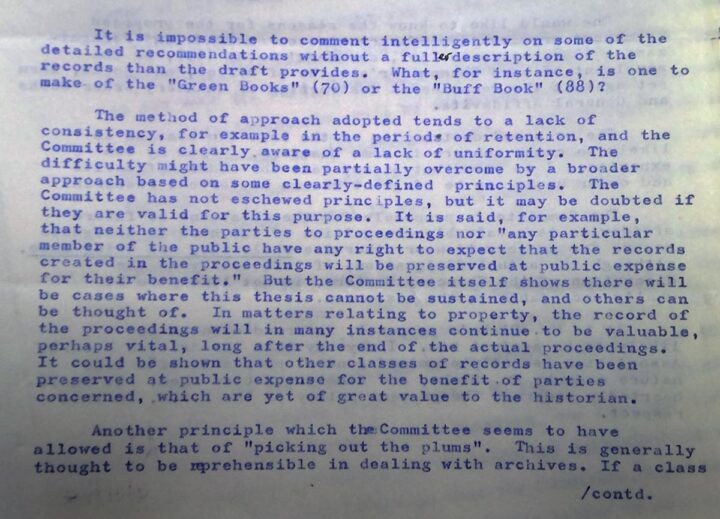
In the 1960s, the Public Record Office and courts across the country were almost overflowing with legal records. The Denning Committee was tasked with examining these records and advising which should be preserved, and which destroyed.
The committee’s recommendations provoked trenchant criticism. Sir Robert Somerville, Chair of the British Records Association, strongly expressed his views in this letter to the committee’s secretary. The memorandum summarises objections to the draft report.
Despite the criticisms, the review’s recommendations on destruction were carried out and have had an enduring impact on the work of researchers and on the experience of open justice.
August 2023
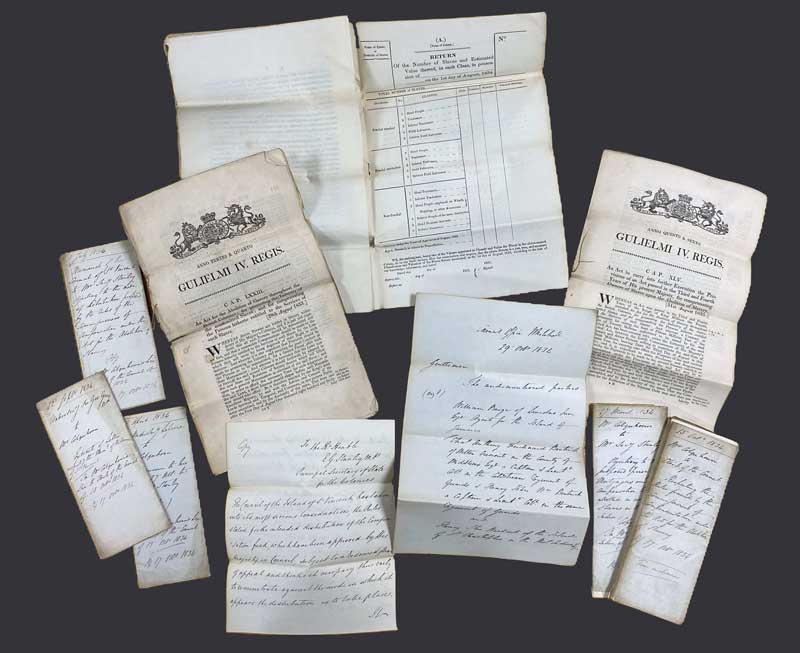
The 1833 Abolition of Slavery Act and compensation claims
This August marks the 190th anniversary of the Abolition of Slavery Act. The Act focused heavily on the rules for compensating slave owners – and some of them appealed against the process, as our records show.
July 2023
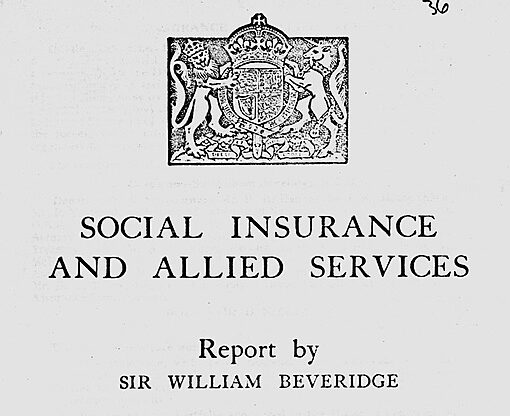
The Beveridge Report
What recommendations did William Beveridge’s report contain and how did these lead to the formation of the welfare state?
June 2023
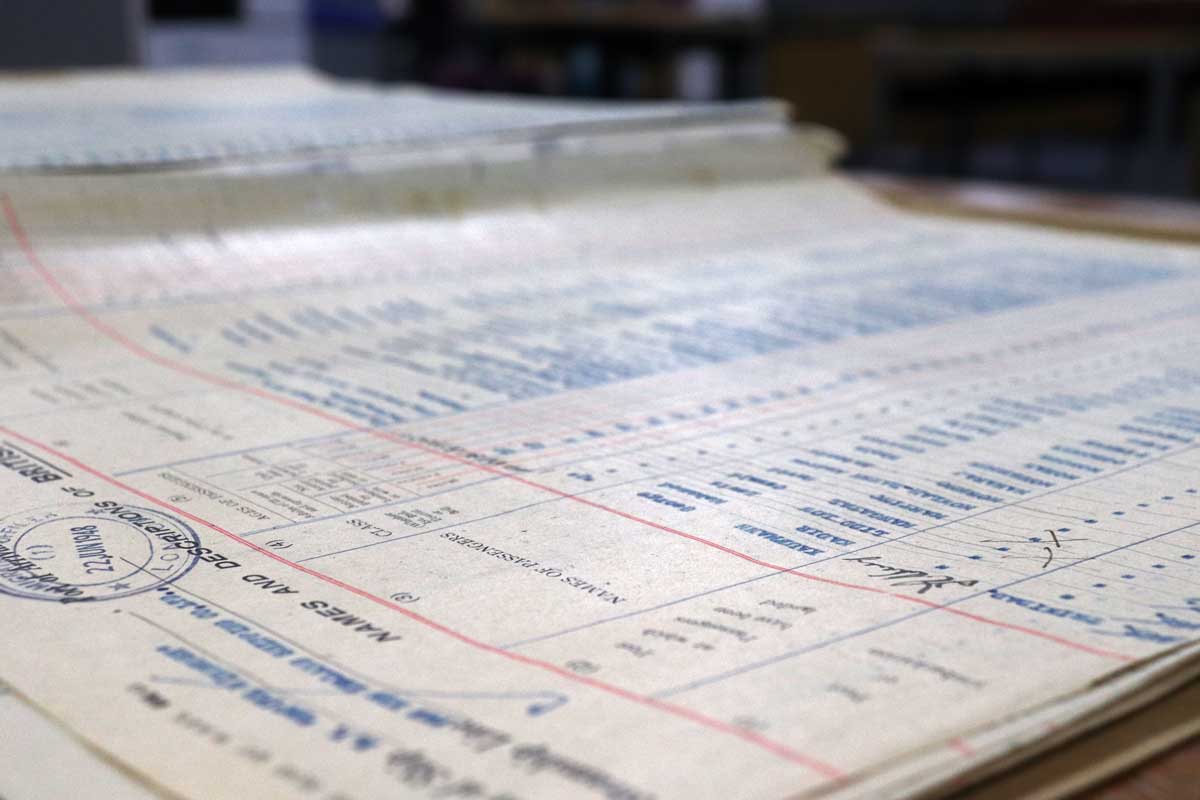
An iconic record: The Empire Windrush passenger list
What is the Windrush Passenger list and what can we learn from it?
May 2023
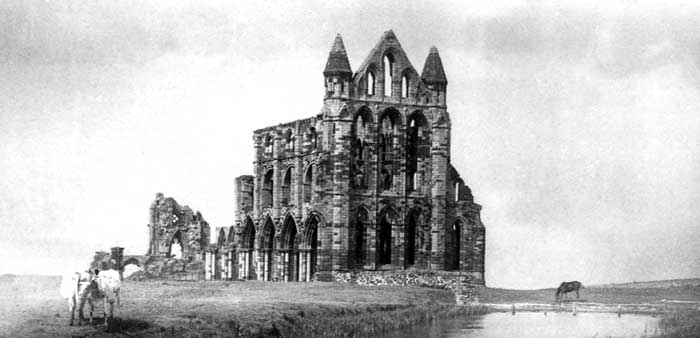
What links Dracula and Tess of the d’Urbervilles?
The answer is hidden in our collection of copyright registration forms.
April 2023
The Hairy Wardrobe Book
Account book of Robert de Wodehouse, deputy keeper of the king’s wardrobe, 1315-1316
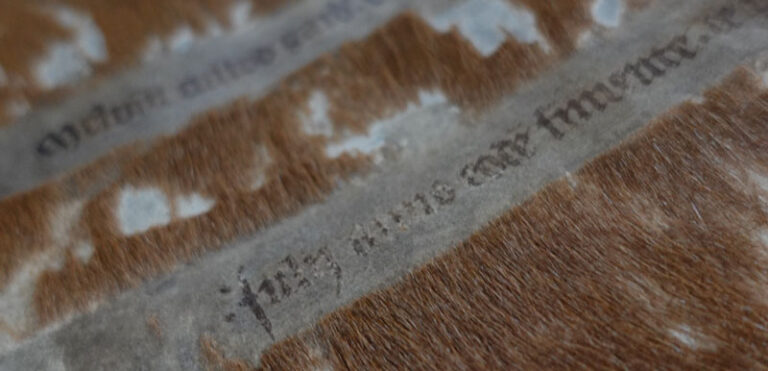 This detailed account of life at court in the reign of King Edward II is one of the wonders of The National Archives.
This detailed account of life at court in the reign of King Edward II is one of the wonders of The National Archives.
It is a beautiful, fascinating object and contains important details, all neatly laid out, about what King Edward spent at court on charity and religion, dress, food, jewels and officials’ wages.
The King’s New Clothes
Excerpt from an account book of the Auditors of the Imprest, about 1661
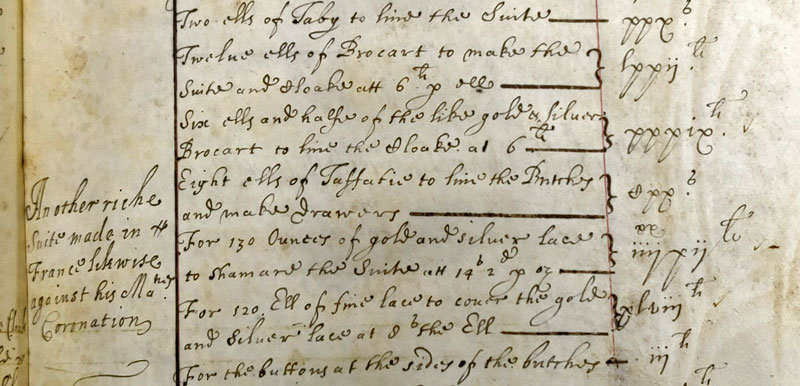 Charles II waited a year after returning from exile for his Coronation at Westminster on 23 April 1661. As this account reveals, he dressed in expensive robes.
Charles II waited a year after returning from exile for his Coronation at Westminster on 23 April 1661. As this account reveals, he dressed in expensive robes.
Charles wore a newly-made crown and carried new regalia, Parliament having destroyed the ancient symbols of monarchy.
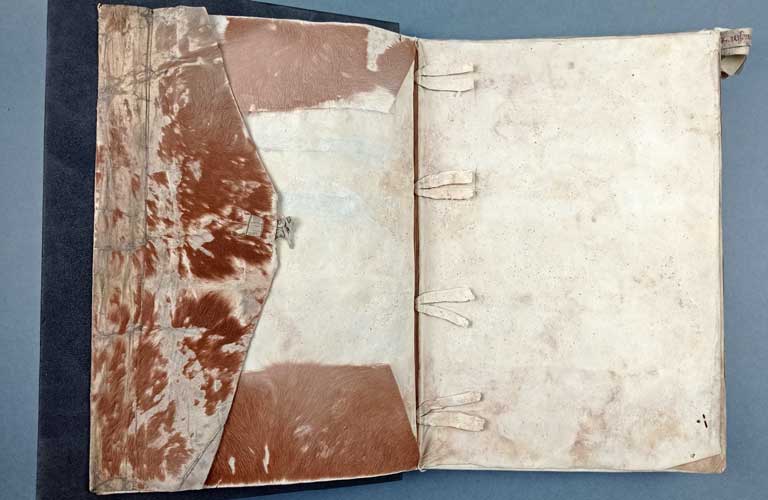
‘Mirror, mirror on the wall, who’s the hairiest of them all?’
Discover what we’ve learned about the materiality of the Hairy Wardrobe Book.
March 2023

A little light reading
How did our Collection Care team investigate the best place to locate our new initiative, Stories Unboxed?